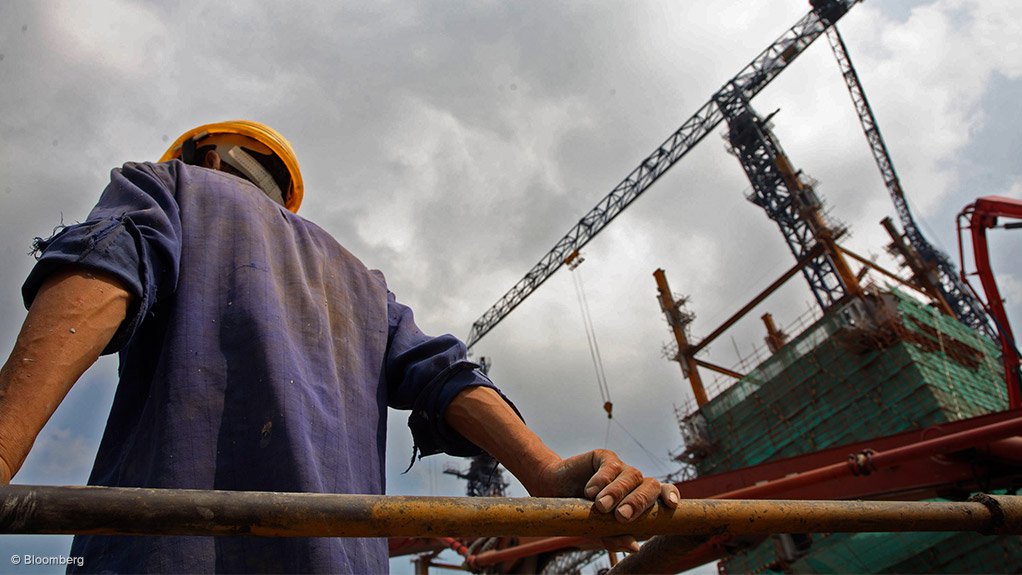New engineering registration requirements to strengthen industry competence – ECSA
The Engineering Council of South Africa (ECSA) says proposed changes to the council’s registration process for engineering professionals and candidates will further align the South African engineering profession with international best practice and ensure conformity with the competence-focus standards of the Engineering Professions Act (EPA).
ECSA told industry stakeholders during a public consultation event in Johannesburg, on Monday, that its New Registration System (NRS) Rule, which was published for public comment in the Government Gazette last month, would further harmonise and consolidate its policies, provide better information and guidance to applicants, use peer volunteer time more effectively and ensure the scalability and sustainability of the online electronic registration system.
Those affected by the overhauled registration process included professional and candidate engineers, engineering technologists, professional certificated engineers, professional engineering technicians, lift inspectors, lifting machinery inspectors, medical equipment maintainers and fire protection systems inspectors.
Currently, to achieve registration in a candidate category, an applicant was required to satisfy the relevant educational outcomes as determined by the council for the category.
To achieve registration in a professional category, an applicant was required to satisfy the educational outcome as defined for the related candidate category and demonstrate competence against standards determined by the council for the particular engineering category.
“There’s no change here, this will stay exactly the same,” Alec Hay noted during a roadshow presentation of the proposed registration system on Monday.
Under the NRS Rule, the education requirements could be met through an accredited qualification, a recognised qualification, qualifications evaluated to be equivalent to traditional qualifications by virtue of the programme obtaining credit against ten criteria or credits obtained by individual assessment.
Accepted qualifications included a BSc in Engineering degree, a B Engineering degree, a B Tech in Engineering degree, a National Diploma in Engineering and a Certificate of Competency in Engineering.
Elaborating on the registration process, Hay outlined that the ECSA policy defined a two-stage method of applicant assessment that involved experience appraisal and a professional review.
In a category in which resources were not available to conduct professional reviews, councils could permit extended experience appraisal and an interview, if needed, to complete the assessment.
“The intention is [thus] not to change the standard, but to better define it and better assess applicants as required by the EPA. It provides a comparable, more defined standard [that allows the registration of] persons who have demonstrated competency against standards determined for [a particular] category.
“These include [assessing the individual’s] level of problem-solving, engineering activity and level of competency,” he commented.
APPLICATION AMENDMENTS
Hay noted that the NRS would require engineers across all disciplines to produce uniform evidence of training or competency, while the same would apply to technologists and technicians.
This would include a training and experience summary, training and experience reports, training and experience outlines, an engineering report, a presentation and preregistration continuing professional development-type activity.
Under the new regulations, applicants would make a paper-based or online application that would be assessed using “common assessment instruments”, during which credit would be given to the applicant for the fulfilled outcomes.
Engineers would also be provided with defined responsibility levels in terms of mentoring and training activities.
Transitioning to the NRS, Hay said candidate engineers who trained under the legacy system, which would likely remain in place for at least another year, would be allowed to reapply in terms of the current requirements.
INDUSTRY INPUT
ECSA CEO Sipho Madonsela, meanwhile, said the industry consultation process was a demonstration of the council’s commitment to engendering a transparent dialogue around the proposed amendments.
“South Africa today demands consultation, as it’s become a central part of our dialogue as a people. You may like what we’re doing, you may dislike the direction we’re taking, but we want to hear from you and this consultation will continue.
“You are the ones who will need to fill out the forms, so it’s important that you find comfort and have a contribution in shaping these standards,” he remarked.
The Johannesburg event formed part of a month-long public consultation roadshow over the proposed changes.
Comments
Press Office
Announcements
What's On
Subscribe to improve your user experience...
Option 1 (equivalent of R125 a month):
Receive a weekly copy of Creamer Media's Engineering News & Mining Weekly magazine
(print copy for those in South Africa and e-magazine for those outside of South Africa)
Receive daily email newsletters
Access to full search results
Access archive of magazine back copies
Access to Projects in Progress
Access to ONE Research Report of your choice in PDF format
Option 2 (equivalent of R375 a month):
All benefits from Option 1
PLUS
Access to Creamer Media's Research Channel Africa for ALL Research Reports, in PDF format, on various industrial and mining sectors
including Electricity; Water; Energy Transition; Hydrogen; Roads, Rail and Ports; Coal; Gold; Platinum; Battery Metals; etc.
Already a subscriber?
Forgotten your password?
Receive weekly copy of Creamer Media's Engineering News & Mining Weekly magazine (print copy for those in South Africa and e-magazine for those outside of South Africa)
➕
Recieve daily email newsletters
➕
Access to full search results
➕
Access archive of magazine back copies
➕
Access to Projects in Progress
➕
Access to ONE Research Report of your choice in PDF format
RESEARCH CHANNEL AFRICA
R4500 (equivalent of R375 a month)
SUBSCRIBEAll benefits from Option 1
➕
Access to Creamer Media's Research Channel Africa for ALL Research Reports on various industrial and mining sectors, in PDF format, including on:
Electricity
➕
Water
➕
Energy Transition
➕
Hydrogen
➕
Roads, Rail and Ports
➕
Coal
➕
Gold
➕
Platinum
➕
Battery Metals
➕
etc.
Receive all benefits from Option 1 or Option 2 delivered to numerous people at your company
➕
Multiple User names and Passwords for simultaneous log-ins
➕
Intranet integration access to all in your organisation



















